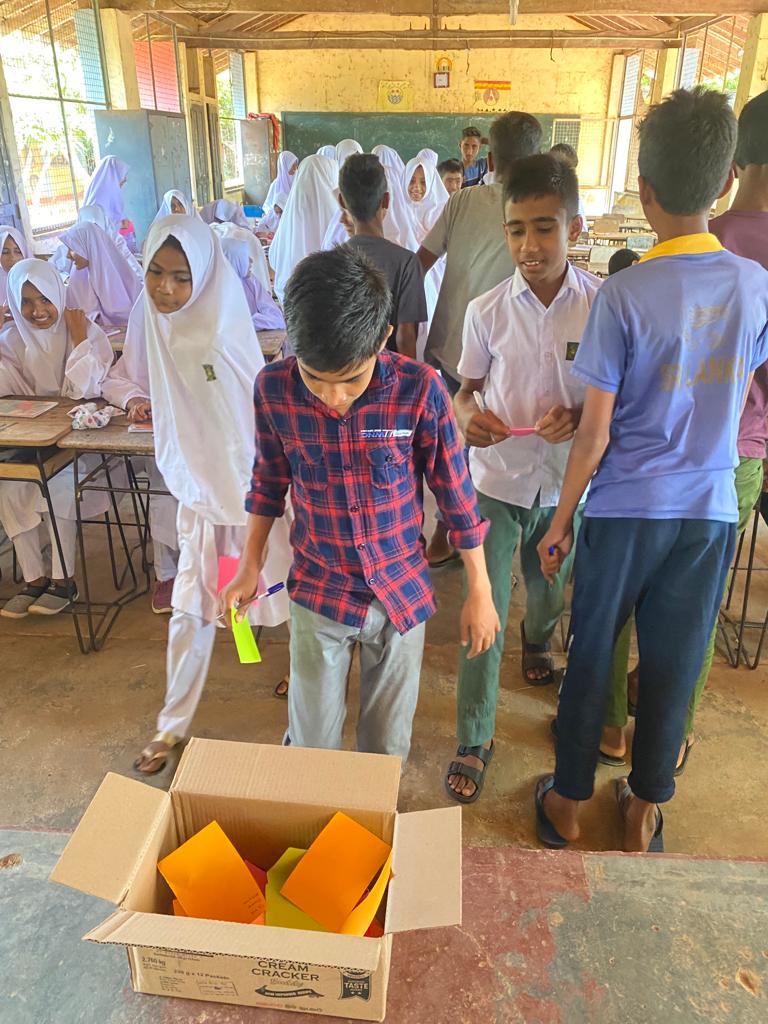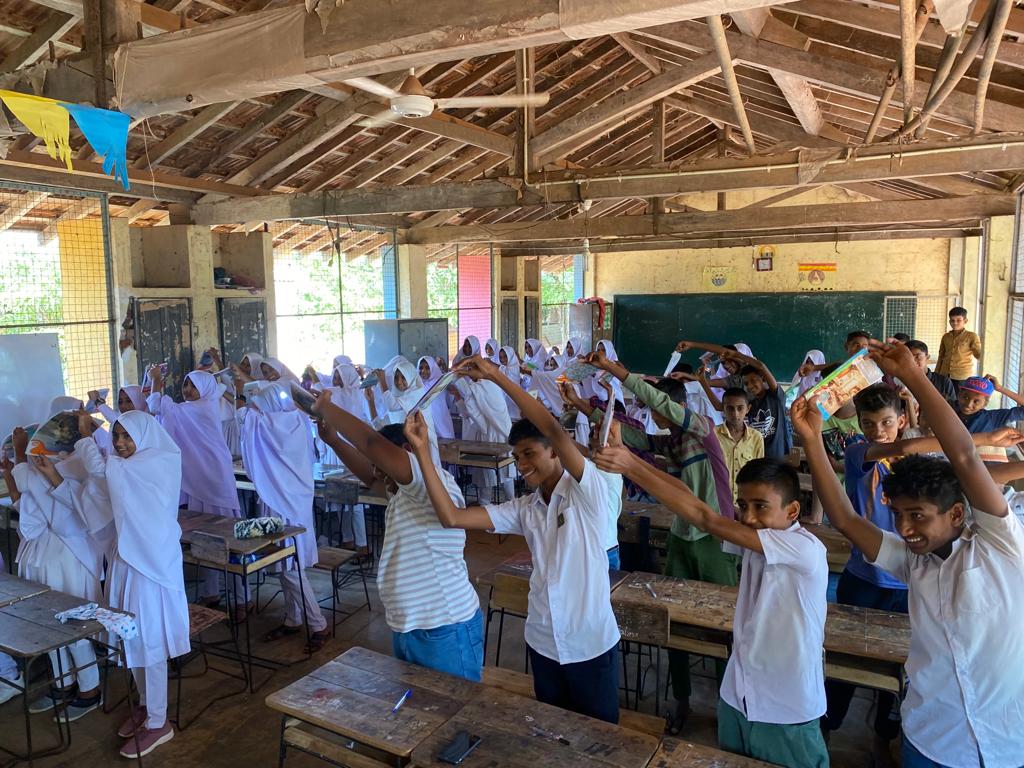September 20, 2023
Anuradhapura, Sri Lanka
Introduction
In today’s rapidly evolving world, digital technology has become an integral part of young people’s lives, offering them numerous opportunities and advantages. However, the excessive and unbalanced use of digital devices has raised serious concerns about the well-being and development of children. While this issue is acknowledged worldwide, its specific impact on children in Sri Lanka has not received comprehensive attention. Recently, the International Foundation for Digital Child (IFDC) took a step forward by conducting a workshop to shed light on this pressing issue and increase awareness of the implications of digital addiction on young children in the country.
The Workshop and its Findings
Recently, IFDC organized a transformative workshop at Mukkarawewa Vidyalaya, focusing on 60 young individuals aged 13 to 17 years. The primary objective was to address and manage digital addiction among children from highly rural and economically marginalized backgrounds. To guide the workshop, IFDC implemented its Digital Addiction Assessment Toolkit (DAAT), a comprehensive set of tools designed to encourage self-evaluation of digital habits among young individuals.
Access to Digital Devices
During the workshop, a startling revelation came to light: only 5% of the students owned their own mobile devices. Nevertheless, these young minds spent an average of approximately 3 hours per day engaged in entertainment activities on screens. Curiously, many children admitted to utilizing mobile phones belonging to family members, including parents, siblings, and relatives, granting them access to multiple smartphones at home and, in turn, providing an abundance of digital choices. This data suggests that a lack of personal devices does not deter children from excessive consumption of entertainment content.
Preferred Digital Activities
IFDC conducted an intriguing exercise known as the “Secret Box,” where students anonymously wrote down their favorite digital activities using sticky notes. This exercise aimed to identify the digital activities that young children enjoyed the most. According to the analysis of responses from the 60 students, their favorite activities ranged from consuming YouTube videos, engaging with TikTok content, watching profile videos, to using WhatsApp. These findings underscore the allure of social media and video-sharing platforms among young Sri Lankans, regardless of their rural upbringing. Furthermore, it reveals that young children prefer using digital devices, particularly smartphones, for internet-related activities, leading to excessive screen time.
Self-Evaluation of Digital Behavior
Using the Self-Evaluation Toolkit, IFDC presented 30 digital behaviors derived from scientifically proven research from various countries that indicate digital addiction tendencies. Astonishingly, almost all 60 children admitted that their digital devices caused distractions while studying, and they also acknowledged experiencing conflicts at home due to excessive device usage. Moreover, the students expressed concerns about how their screen time affected their productivity at school and home. The toolkit findings highlighted that youngsters’ ability to focus, build social relationships, and maintain physical and mental health were significantly affected by imbalanced device use.
The Role of Parents as Role Models
One crucial topic discussed during the workshop was the role of parents as digital role models for their children, particularly concerning smartphone usage. The workshop revealed that many parents frequently used smartphones while at home but warned their children against doing the same. This contradictory behavior demonstrated the lack of a healthy digital role model from parents. Participants, including teachers and parents, realized the significance of providing a meaningful example to children to effect a positive change in their digital habits.
Recommendations
IFDC emphasizes the urgency of addressing this issue and suggests that the Education Ministry and provincial educational departments in Sri Lanka pay immediate attention to providing guidance and support to children from all corners of the country to manage their digital lives effectively. It is essential not only to train students but also to actively engage parents and provide them with customized and family-centered rules to guide their digital device use at home. Implementing digital literacy programs and raising awareness among parents, teachers, and students can create a balanced approach to technology usage and mitigate the adverse effects of excessive screen time on young minds.
Conclusion
The IFDC workshop provided valuable insights into the imbalanced digital lives of young children in Sri Lanka. The findings underscore the pressing need for targeted interventions and support systems to promote healthy digital habits and responsible usage among the youth. By involving all stakeholders, including parents, teachers, and policymakers, Sri Lanka can cultivate a generation of digitally responsible individuals capable of navigating the digital world in a manner that benefits their overall well-being and development.
Additionally, IFDC offers free seminars for schoolchildren upon request from principals, school development societies, and alumni. These free workshops also provide access to several freely available digital tools to enhance the digital lives of young children. By taking collective action, Sri Lanka can create a positive digital environment, ensuring that its youngest generation harnesses the potential of technology while safeguarding their mental and emotional health. More details visit : www.ifdchild.org

